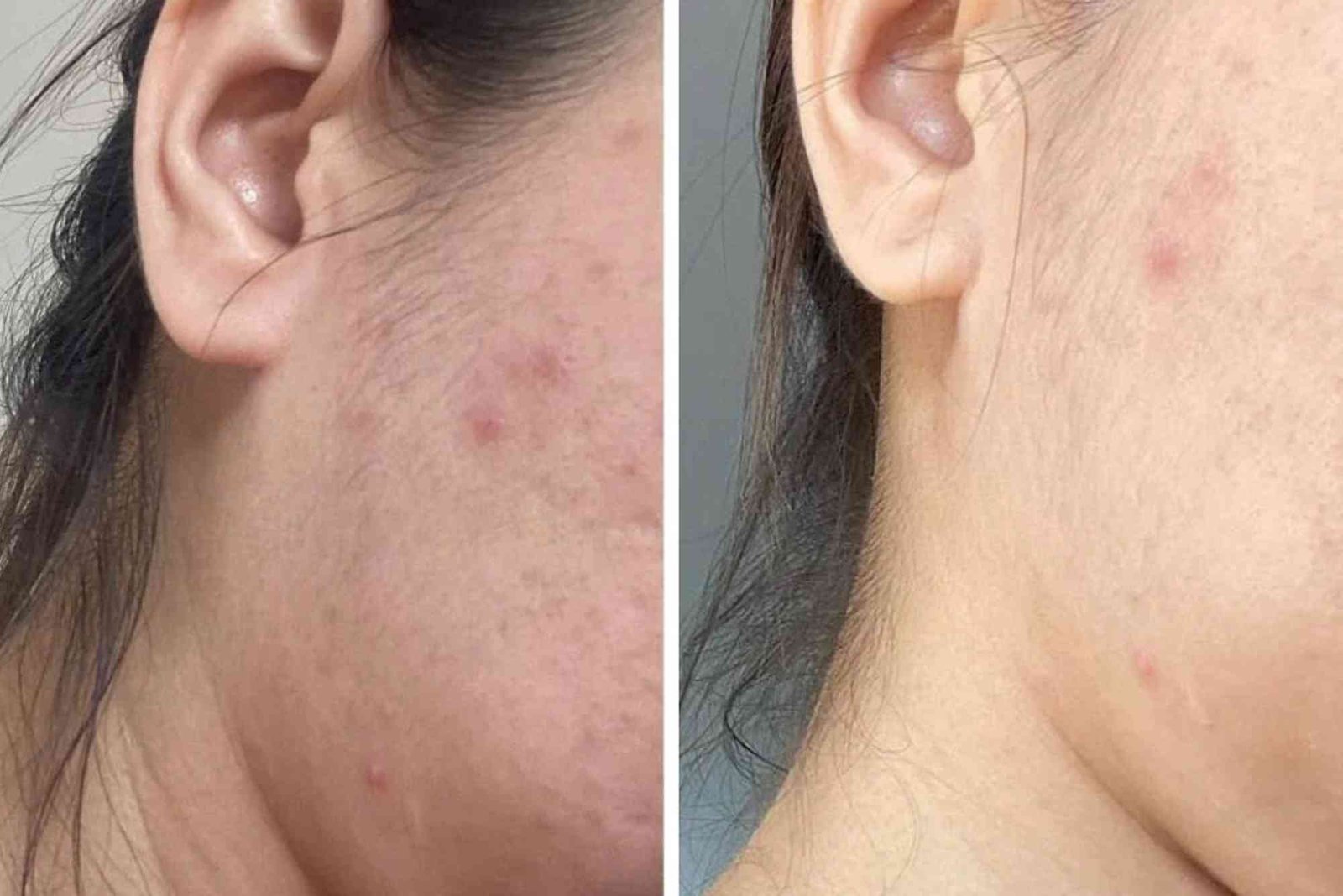Complete Guide
Caring for acne-prone skin can feel overwhelming, but with the right approach, you can achieve clearer, healthier skin. This guide outlines expert-backed steps and tips to help manage acne effectively. Whether you’re looking to establish a skincare routine or seeking answers to common questions, we’ve got you covered.
What Causes Acne-Prone Skin?
Acne-prone skin results from excess oil production, clogged pores, and inflammation. Hormonal changes, genetics, stress, and certain skincare products can exacerbate the condition. Understanding the causes of acne is key to choosing the right skincare routine and products.
Step-by-Step Guide to Caring for Acne-Prone Skin
Follow these steps to care for acne-prone skin effectively:
Cleanse Twice Daily
Choose a gentle, non-comedogenic cleanser to remove dirt, oil, and makeup. Look for ingredients like salicylic acid or benzoyl peroxide for deeper cleansing. Wash your face in the morning and evening to keep pores clear.
Exfoliate Weekly
Exfoliation helps remove dead Care For Acne Prone Skin cells that clog pores. Opt for chemical exfoliants with AHAs (alpha hydroxy acids) or BHAs (beta hydroxy acids) rather than harsh physical scrubs. Exfoliate 1-2 times a week for best results.
Hydrate Without Clogging Pores
Use a lightweight, oil-free moisturizer to keep your skin hydrated. Ingredients like hyaluronic acid provide hydration without contributing to breakouts.
Spot Treat Acne
Apply spot treatments containing active ingredients like benzoyl peroxide or tea tree oil directly on blemishes. This targets inflammation and bacteria.
Apply Sunscreen Daily
Protect your skin with a broad-spectrum sunscreen rated SPF 30 or higher. Many sunscreens are formulated specifically for acne-prone skin to prevent further irritation.
How to Optimize Your Skincare Routine
Here are additional tips to enhance your routine:
- Stick to a Consistent Routine: Consistency is crucial for seeing results. Avoid switching products frequently.
- Avoid Overwashing: Over-cleansing can strip your skin of natural oils, causing irritation and breakouts.
- Don’t Pick at Pimples: Picking can lead to scars and prolong the healing process.
- Use Non-Comedogenic Products: Always choose products labeled “non-comedogenic” to reduce the risk of clogged pores.
FAQs About Acne-Prone Skin
Q: How often should I wash my face if I have acne-prone skin?
A: Wash your face twice daily, in the morning and evening. Overwashing can cause irritation and worsen acne.
Q: Can I use makeup on acne-prone skin?
A: Yes, but opt for non-comedogenic makeup products and ensure you remove them thoroughly at the end of the day.
Q: What foods should I avoid for clearer skin?
A: Minimize intake of sugary, high-glycemic foods and dairy, as they can trigger acne in some individuals.
Q: Are natural remedies effective for acne?
A: Ingredients like tea tree oil and aloe vera can help, but results vary. Patch-test before applying.
Q: Should I see a dermatologist for acne?
A: If over-the-counter treatments aren’t effective, consult a dermatologist for professional advice.ments.




